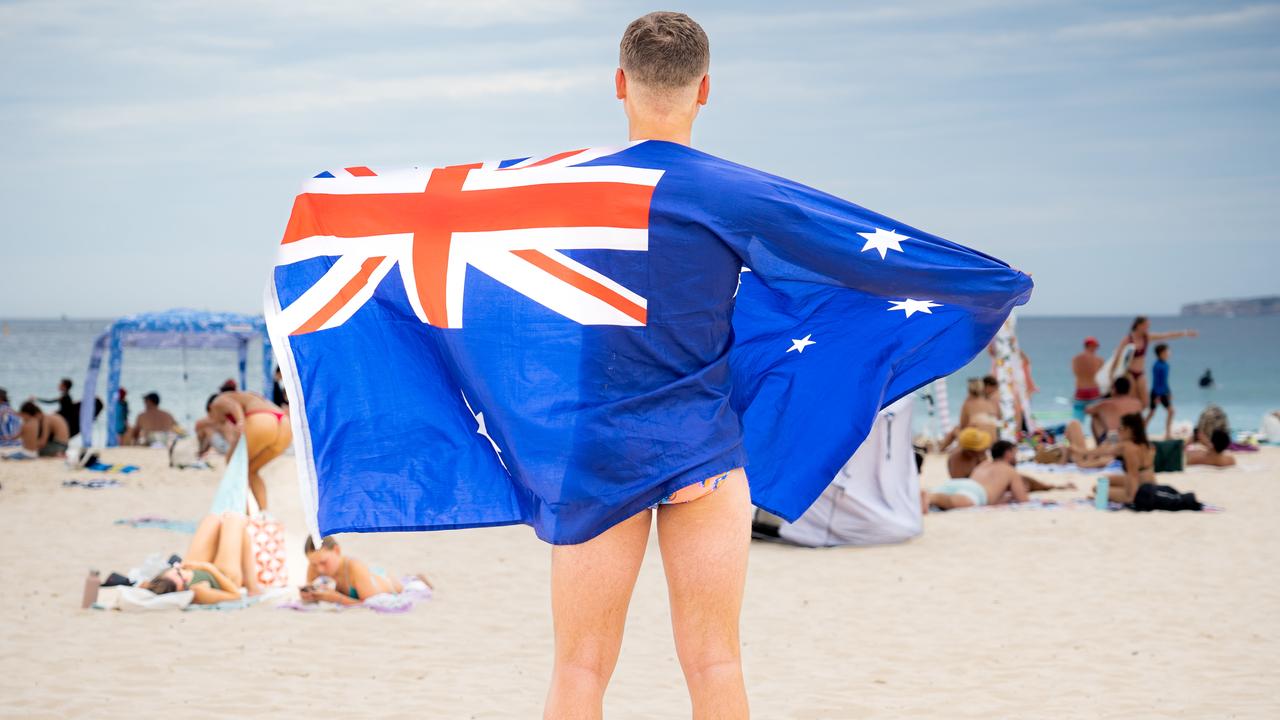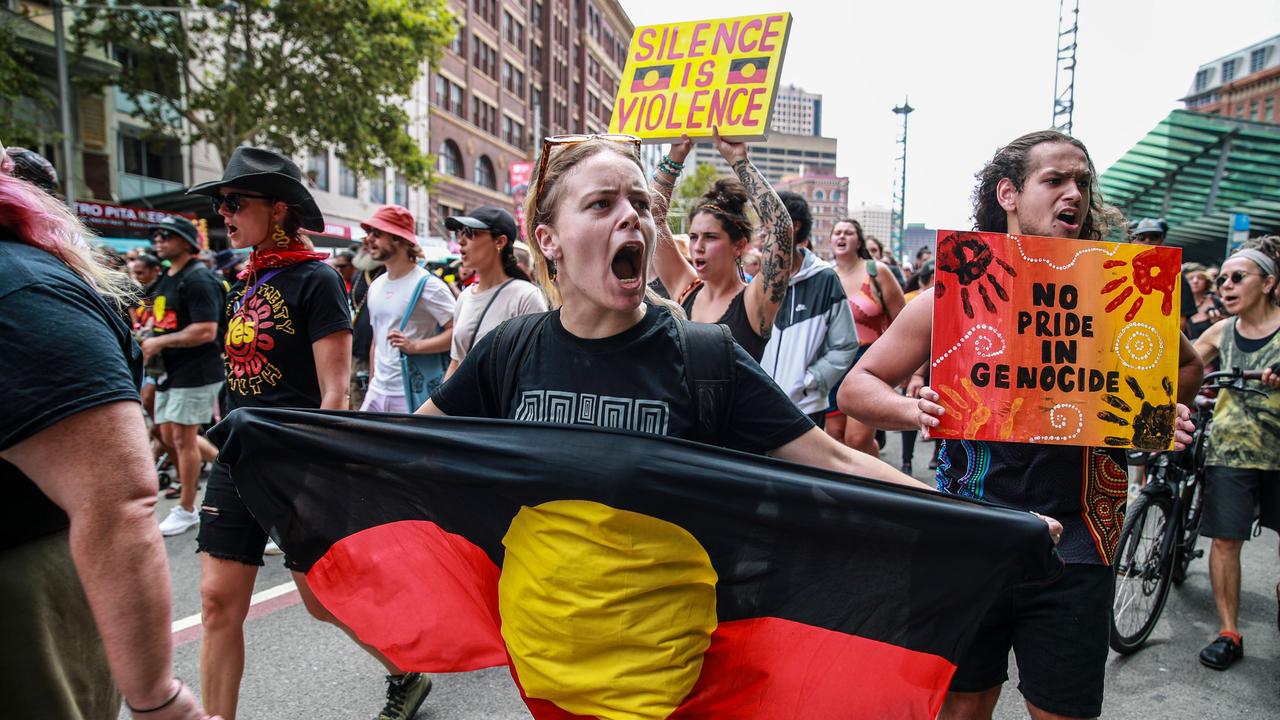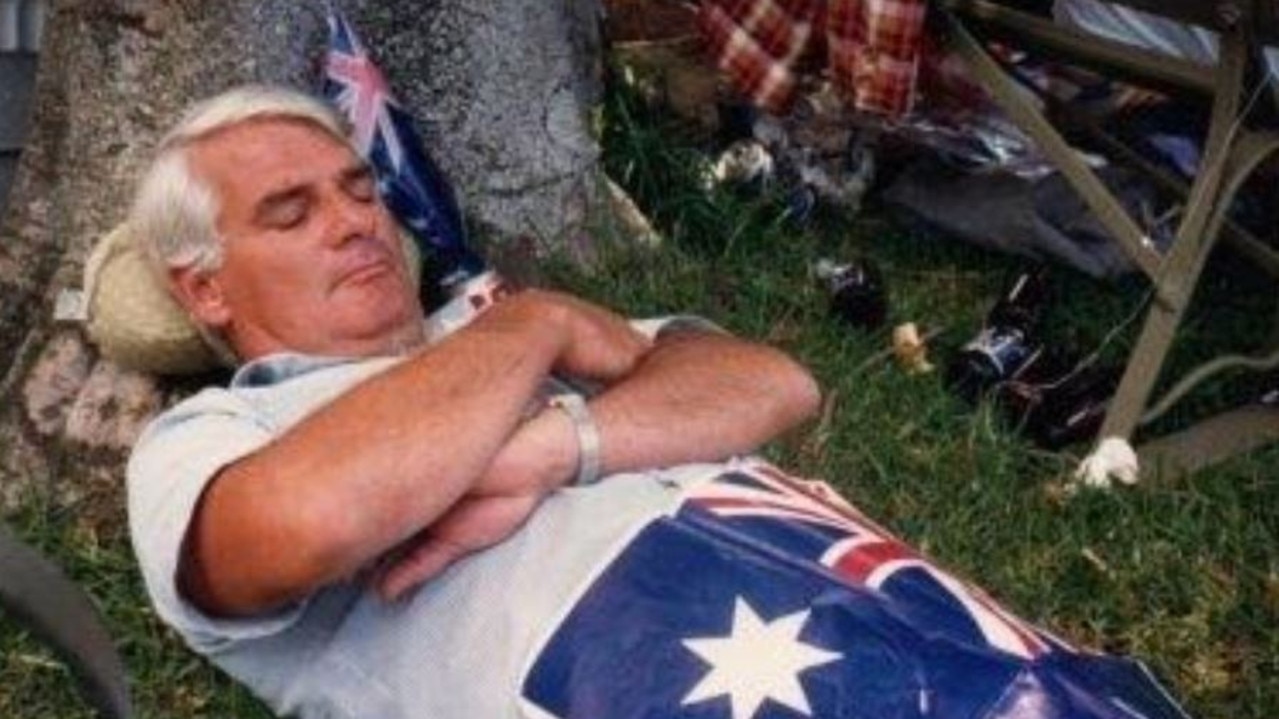The haters are losing the Australia Day fight, and that’s great news for us as a nation
At a time Australians have are increasingly being pitted against each other over everything from housing to the Middle East any sort of societal glue is not just welcome … it’s desperately needed.
Opinion
Don't miss out on the headlines from Opinion. Followed categories will be added to My News.
Is it just me or does the annual Australia Day fight feel different this year?
Normally this summertime warm-up lap for the coming year’s public debates follows a pretty set pattern.
First, one or another council or corporation backs off from the day, saying they don’t want to be part of something “not everyone can celebrate” – or words to that effect.
Then there is the to-and-fro over the meaning of the day and whether it should be on January 26 (though everyone knows you could pick a new date by putting a calendar on a dart board and the haters would still find a way to complain).
Finally everyone has their day off, their barbecue, their beach, or their “invasion day” rally and moves on with their lives.

But now, in 2025, something feels like it has changed.
No longer are progressive revolutionaries quietly buoyant that if they keep chipping away one day everyone will decide it’s all too hard and the whole edifice will fall.
Instead Australians – like people around the world – are looking at the tut-tutting secular moralisers of the left who see any expression of national pride or sovereignty as being one step removed from fascism and telling them where to go.
First, there were the big corporates: After public backlash, a big supermarket chain and a huge foreign owned pubs group walked back their plans to ignore the day.
Then there was the IPA poll finding a big uptick from last year’s survey about Australia Day, with 69 per cent of respondents saying keep the date.
This included, crucially, a big shift in support among 18 to 24 year olds who recently spent a dozen-plus years being told to feel bad about their history while copping stolen land propaganda from over-politicised teachers.

Finally, there was Opposition Leader Peter Dutton’s vow to reverse an Albanese government decision that allowed local councils to stop holding citizenship day ceremonies on Australia Day.
Is it any wonder that the anti-Australia Day crowd is acting more and more unhinged?
On Monday this masthead reported on activist Elsa Tuet-Rosenberg and her social media call to “F**k up their dumb war memorials which glorify western imperialism while refusing to acknowledge the frontier wars”.
“Universities, suburbs, streets, shops etc named after genocidal colonisers? F**k them up too!”
The left senses the wind has changed, and they’re not happy.
Now to be fair, conservatives can also get a bit out over their skis on Australia Day.

But this is done by conflating the basic human, tribal need for a unifying national piss-up with some grand Enlightenment project.
Yes, the arrival of the First Fleet quite literally staked a claim in Australia for a whole set of European and Western ideals, including Australia’s (currently stressed) Enlightenment values of tolerance and acceptance and individualism.
Yet the real point of Australia Day, just as it is for all sorts of other rituals from cheering on the Aussies at the cricket to remembering our dead later in the year at Anzac Day, is more tribal.
It is, or should be, an event to bind us together under one flag no matter where we come from.
In an age when Australians have ever less in common – faith, origin, whatever – and are increasingly being pitted against each other over everything from housing to the Middle East, any sort of societal glue is not just welcome but desperately needed.
This is why there was something so quietly sinister about the Albanese government’s breaking the link between citizenship ceremonies and Australia Day.
Likewise, the suggestion in Labor’s quietly shelved (for now) multiculturalism review that applicants for citizenship be allowed to take their tests not in English but in the language of their homeland.

If, as Australians, we can’t even speak the same language with one another, how are we supposed to come together as neighbours, friends, workmates – and, should it ever come to it, fellow citizens fighting off a common outside enemy?
Impossible, obviously.
This push to devalue national unity is why, ironically, anti-Australia Day leftists and so many big corporates find themselves on the same side on these things, not just on culture war fights but also big ticket policy items like immigration that threaten any vision of the nation as anything more than an economy.
But this also has consequences, from Labor’s both-sidesing the Middle East leading to near-daily anti-Semitic awfulness to a housing crisis whipped on by “Big Australia” lobbyists.
The challenge for Peter Dutton is to catch this wind and use it to tell a binding story not just about Australia’s past but about our collective future.
The aim for the rest of us should be to enjoy the day.
More Coverage
Originally published as The haters are losing the Australia Day fight, and that’s great news for us as a nation









